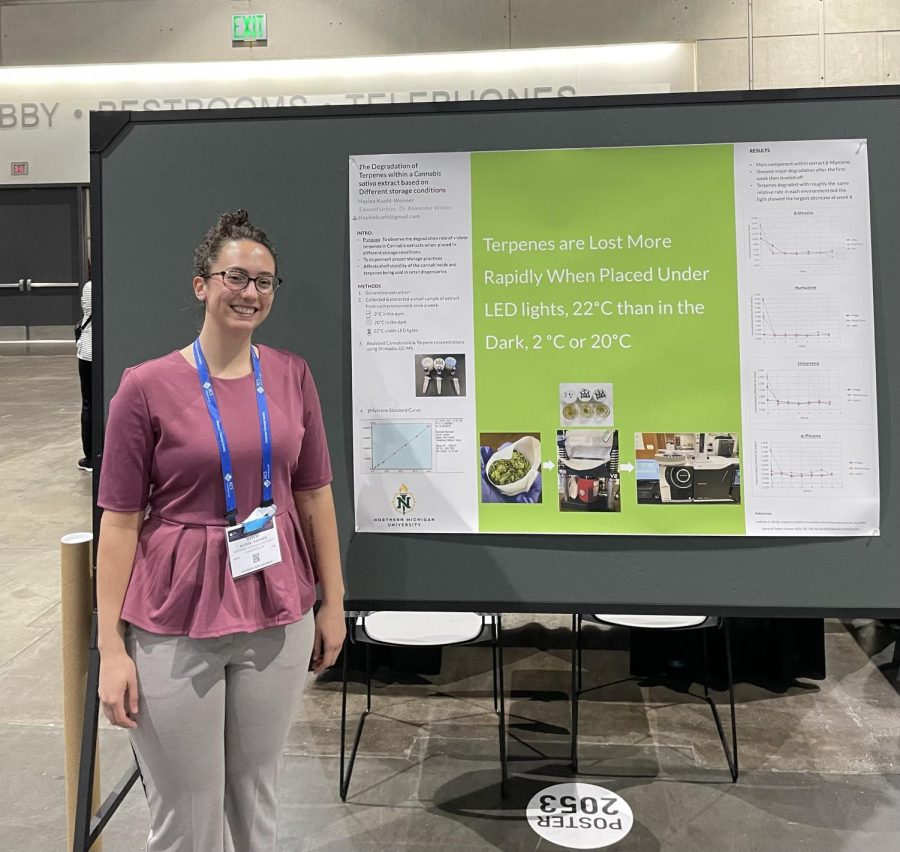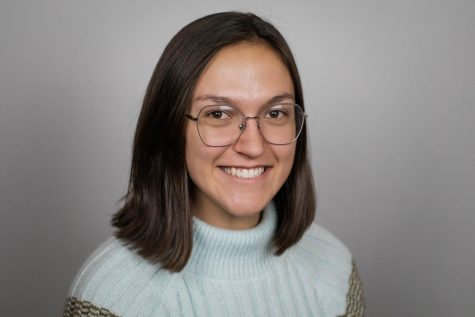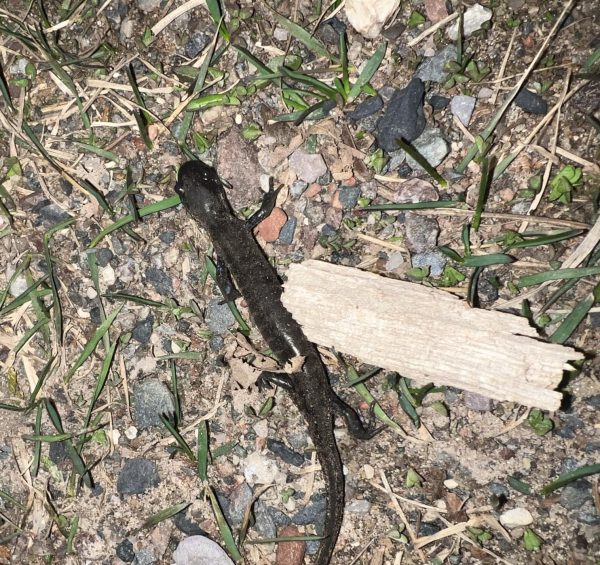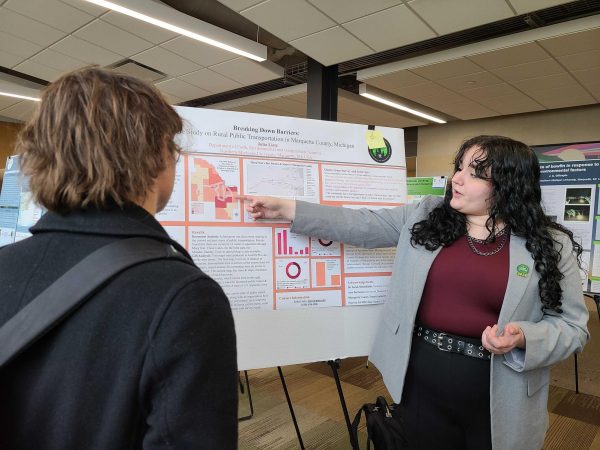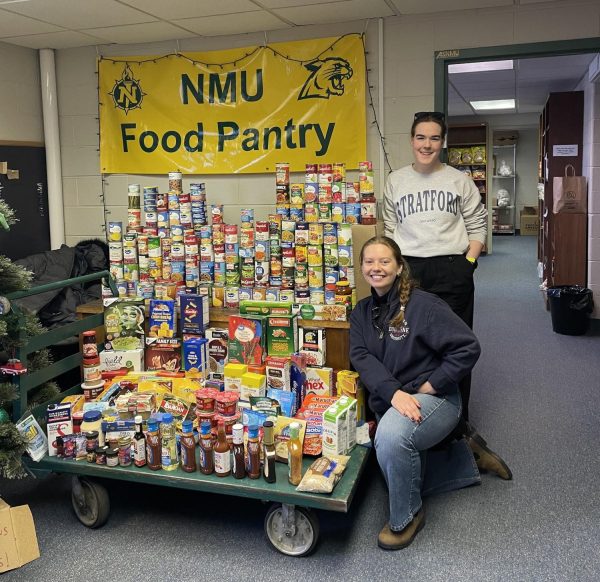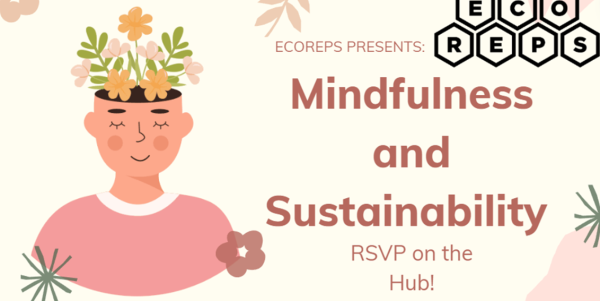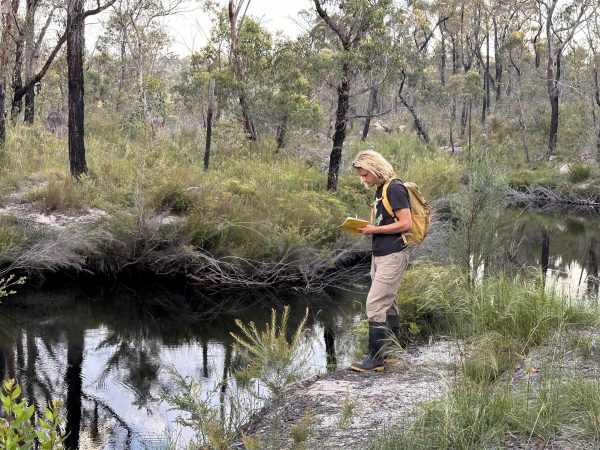Cannabis Education Conference will showcase student scholarship
Photo courtesy of Haylee Kuehl-Weisser
Haylee Kuehl-Weisser presents her research at another cannabis focused conference in California. She will be presenting her research involving different methods of oil extractions for cannabis at the Cannabis Education Conference on April 19 along with other students from NMU.
April 15, 2022
Morgan Naumaan and Haylee Kuehl-Weisser, senior medicinal plant chemistry majors, have been conducting cannabis research for the past year. Now that they have finished their research, produced results and created poster presentations, they are ready to show off their discoveries at the first-annual Great Lakes Cannabis Education Conference.
The Northern Center is welcoming industry professionals, faculty, students and all those interested in learning about cannabis research to attend this event. The conference will be held on Tuesday, April 19, from 8 a.m. to 5 p.m. Discussion topics range from scientific advancements in the study of cannabis to the consumption, use and distribution of cannabis.
“[This event] is a way for students and other people in the scientific cannabis industry to network and kind of connect with each other as far as research, job potential and things like that,” Kuehl-Weisser said. “I am really excited to network and just hear other students’ research.”
The event will kick off with a keynote address from Riley Kirk, a cannabis research scientist and educator. Kirk’s work has revolved around the utilization of smoke extracts within the cannabis industry.
“In the medicinal plant lab, we make extracts using solvents and plant material, not smoke,” Naumaan said. “I am super interested to see what [Kirk] has to say about smoke extracts and how they actually make their products by using smoke.”
While the event is intended as an educational conference, both Naumaan and Kuehl-Weisser are also interested in making connections with industry professionals in preparation for post-graduation. Due to Marquette’s relatively remote location, job opportunities within the cannabis industry are few and far between.
“It is kind of hard to network in this industry, especially being all the way up here in the U.P. It is hard to go to more events and meet people downstate,” Kuehl-Weisser said. “It would be really cool to just find more opportunities that I was not able to find online, so I am excited to make connections.”
Along with Kuehl-Weisser and Naumaan, several other students from the medicinal plant chemistry and indoor agriculture programs will be presenting their research to the array of legal advisors, academics and entrepreneurs who will be in attendance.
Indoor agriculture students, like Naumaan, will be displaying the hydroponic growing systems that they designed and built themselves. These systems utilize water as their growing medium rather than soil.
“I made a drip hydroponic feeding system for cannabis plants,” Naumaan said. “It will be really cool to see all of the other systems and ideas floating around within the student body.”
In addition to her indoor agriculture work, Naumaan will be showcasing her medicinal plant chemistry research as well, which ties directly into her construction of a hydroponic feeding system.
“My research tried to investigate the cannabinoid production between plants grown in soil compared to plants grown in different variants, like hydroponic mediums,” Naumaan said.
Kuehl-Weisser’s research pertains to the degradation rates of cannabinoids and terpenes, two compounds contained within a cannabis plant. Common known cannabinoids are CBD and THC, and terpenes, like pinene and limonene, help determine hemp’s specific scent.
Taking hemp from flowers grown on campus, Kuehl-Weisser extracted oils using heat and pressure. After placing the extracted oil into three different environments, a fridge, a dark space, and under an LED light, Kuehl-Weisser attempted to measure the rate at which the oils broke down.
“I got the idea from when I was at a dispensary,” Kuehl-Weisser said. “I saw how they have extracts on display and was curious to see how that would essentially affect the products that were being sold.”
Both Naumaan and Kuehl-Weisser hope to receive feedback from professionals regarding their research presentations, along with exchanging ideas with fellow students.
“I hope my research can help future students figure out some of my errors so they can learn, create, and show a better research project,” Kuehl-Weisser said. “There are so many little things that can affect your data. I am open to see if other students can catch anything that I didn’t.”
While the Cannabis Education Conference is an academic experience for attendees, it is also spreading awareness of the role of cannabis in society and the flourishing medicinal plant chemistry program on campus. Kuehl-Weisser sees this conference as an opportunity for NMU to expand the program and its necessities.
“Space and faculty are the number one things that the MPC program desperately needs,” Kuehl-Weisser said. “It is hard to get that one-on-one experience with professors. As far as growing and instrument space, there are so many students per instrument so it’s hard.”
The Cannabis Education Conference will also be hosting many local cannabis industry leaders and entrepreneurs, specifically from the Fire Station, Lume and Higher Love dispensaries, to speak at the event.
Those interested in attending the event can register here. NMU students will be able to register free of charge, while other students can register for $25 and general attendees for $50. Coffee and refreshments will be offered at the beginning of the conference, and lunch will be provided at 12:30 p.m.
“[Cannabis] is super important because it is growing so fast in popularity and people are consuming it at such a rapid pace every day. I think that the conversation needs to be had more often about what this plant really entails, what chemicals it makes, are they harmful, are they not, and how can we use those to make medicine,” Naumaan said. “[Cannabis] is a really complex and unique plant that needs a lot more studying and research done on it.”





















